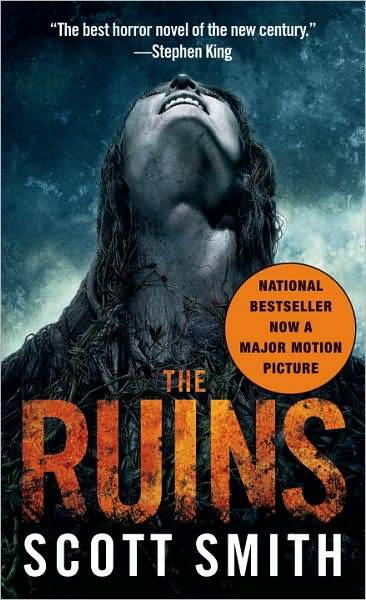 As I’ve said elsewhere, you can’t really call Manowar a band any more. For the past twenty years they’ve been bassist Joey DeMaio’s Little Alimony Fund That Could, a relentless cash generating machine that probably actually isn’t all that relentless…or cash generating.
As I’ve said elsewhere, you can’t really call Manowar a band any more. For the past twenty years they’ve been bassist Joey DeMaio’s Little Alimony Fund That Could, a relentless cash generating machine that probably actually isn’t all that relentless…or cash generating.
Somewhere around 1992, they lost all their work ethic in the studio, and started filling the gaps with compilations, remasters, re-releases, and a neverending deluge of live albums (if you’re a Manowar completist, you’ve probably bought “Battle Hymns” at least a dozen times.) Here’s Joey DeMaio’s latest “gimme your lunch money” – a re-recording of the band’s legendary 1990 album Kings of Metal.
What a terrible idea.
If you ask a group of Manowar fans to pick the band’s greatest album, half will immediately answer Kings of Metal, and the other half will not be able to agree on a challenger to the throne. I’ve always found it inconsistent and half-cocked, but at its best it’s a superb slab of early power metal, and most of its shortcomings are found at the conceptual level – you can’t really “fix” it. So why this re-recording? Because Joey DeMaio likes caviar.
They changed the tracklisting. Now we start with “Hail and Kill” – fantastic on the 1990 version, dull and slowed down here. Eric Adams’ voice is haggard, clearly Frankensteined together from many edits and overdubs. Then we’ve got the title track. “Other bands play, Manowar kill!” Other bands play, Manowar bilk their fans. “Heart of Steel” sounds pretty solid. I’ll say this, they nail ballads much better than they used to.
Raging speed-fest “Wheels of Fire” is featured here as “On Wheels of Fire”, and sounds muddy, downtuned and shit-awful. The drums actually sound weaker than they did in 1990 – the kind of relentless percussive assault you get from tapping a pencil on a school desk. Then there’s “Blood of the Kings”, which Joey makes annoying as hell by adding all sorts of extra shout-outs to fans in various countries “Argentina, Japan, Portugal, Lithuania, Canada, Spain, Israel…” – is this a geography quiz? Kings of Metal‘s lesser tracks like “Kingdom Come” were mediocre then and remain mediocre now. Note that they didn’t even bother re-recording “Pleasure Slave.”
Eric Adams is showing his age. He used to hit all sorts of ungodly notes in E, now he stays far away from them in D. Joey DeMaio’s a bit too prominent in the mix, frequently turning the album into mud. Karl Logan is actually a saving grace. Most Manowar fans are a bit leery of him, but his dry whammy-abusing style works really well for the band. One of Kings of Metal MMXIV‘s rare treats is a guitar instrumental of “Heart of Steel”, which sounds really powerful and emotional.
But ultimately, Kings of Metal MMXIV is underwhelming and unimpressive – and even if it had been executed perfectly it would still have been a lame cash grab. Why am I still a fan of Manowar? Because Joey DeMaio VERY occasionally decides to boost Magic Circle Music’s bottom line by releasing excellent music. This isn’t one of those times.
No Comments »
 It’s sad how whole families are torn apart by simple things, like wild dogs – Jack Handey
It’s sad how whole families are torn apart by simple things, like wild dogs – Jack Handey
Since the beginning, not one unusual thing has ever happened – The universal law
You know what they say the modern version of Pascal’s Wager is? Sucking up to as many Transhumanists as possible, just in case one of them turns into God. – Julie from Crystal Nights
When the axe came into the woods, the trees said: ‘But at least the handle is one of us.’ – Turkish proverb
The society which scorns excellence in plumbing as a humble activity and tolerates shoddiness in philosophy because it is an exalted activity will have neither good plumbing nor good philosophy: neither its pipes nor its theories will hold water – John W. Gardner
No snowflake in an avalanche ever feels responsible – Voltaire
Luck is statistics taken personally – Penn Jellete
Be careful what you pretend to be because you are what you pretend to be. – Kurt Vonnegut
A good friend will always stab you in the front. – Oscar Wilde
I believe I have found the link between animals and civilized man. It’s us – Konrad Lorenz
Mr. Chamberlain likes to take weekends in the country. I shall take countries in the weekend — Adolf Hitler (apocryphal?)
Death is not extinguishing the light; it is putting out the lamp because the dawn has come. — Rabindranath Tagore
As a startup CEO, I slept like a baby. I woke up every two hours and cried. – Ben Horowitz
We judge others by their actions, but we judge ourselves by our intentions – Ian Percy
He uses statistics as a drunkard uses a lamppost: for support, not for illumination – G.K. Chesterton
How delightful are the pleasures of the imagination! In those delectable moments, the whole world is ours; not a single creature resists us, we devastate the world, we repopulate it with new objects which, in turn, we immolate. The means to every crime is ours, and we employ them all, we multiply the horror a hundredfold. – Marquis de Sade
No Comments »
 Stephen King describes this book as “your basic long scream of horror.” I read it and uttered a basic long scream of boredom. It’s another pandering “wants to be a horror movie” book that does everything except list the names of ideal actors for the film adaptation in the cover sleeve.
Stephen King describes this book as “your basic long scream of horror.” I read it and uttered a basic long scream of boredom. It’s another pandering “wants to be a horror movie” book that does everything except list the names of ideal actors for the film adaptation in the cover sleeve.
Why do I see such a neglect for literature in horror? Literature’s great. Literature rules. Literature can do things and access places that cinema never can and never will, and yet writers almost seem to treat it as a necessary evil on the road to a screenplay. Yeah, books. Those things made of paper. No reason to bother with them, except that sometimes they turn into movies.
In this case, the “film über alles” attitude has resulted in a bare bones, uninvolving story that consists primarily of descriptions of visuals. The story’s totally familiar. A bunch of college kids are on vacation, and instead of a guy in a hockey mask they run afoul of evil plants.
Why plants? Welcome to modern horror: there’s no logic to why anything happens. The book’s floral nemeses are kept shadowy and mysterious, allowing Scott Smith to imbue them with whatever characteristics are convenient at the moment. At one point the vines are drinking the tourists’ blood. At another point they’re imitating the tourists’ speech. Why stop there? Why not have the plants walk around? Everything that happens is totally arbitrary.
Roger Ebert said it very well when talking about Labyrinth. “I have a problem with almost all nightmare movies: They aren’t as suspenseful as they should be because they don’t have to follow any logic. Anything can happen, nothing needs to happen, nothing is as it seems and the rules keep changing. Consider, for example, the scene in “Labyrinth” where Sarah thinks she is waking up from her horrible dream and opens the door of her bedroom. Anything could be outside that door.Therefore, we’re wasting out psychic energy by caring. “
Prose does not carry across into a movie, so Scott Smith doesn’t give much of a shit about it here. It’s written in a bare-bones reportage style with not a word wasted, and not a word put to good use. The book’s horror works at an exclusively visual level, and this sort of thing needs a stabbing orchestral score to be really effective. Nowhere does the prose start to work magic.
The book is overlong and exhausting, with too many scares pitched at the same level, and not enough space to breathe. But it takes several hours to read, while the movie version is just 90 minutes long, so – another indicator of the book being a troublesome, flawed frog, while the movie adaptation is the handsome prince. All that’s missing is the scrolling credits at the end. Fans can recreate the scrolling at home by feeding The Ruins‘ pages to a shredder.
No Comments »
 As I’ve said elsewhere, you can’t really call Manowar a band any more. For the past twenty years they’ve been bassist Joey DeMaio’s Little Alimony Fund That Could, a relentless cash generating machine that probably actually isn’t all that relentless…or cash generating.
As I’ve said elsewhere, you can’t really call Manowar a band any more. For the past twenty years they’ve been bassist Joey DeMaio’s Little Alimony Fund That Could, a relentless cash generating machine that probably actually isn’t all that relentless…or cash generating. 

